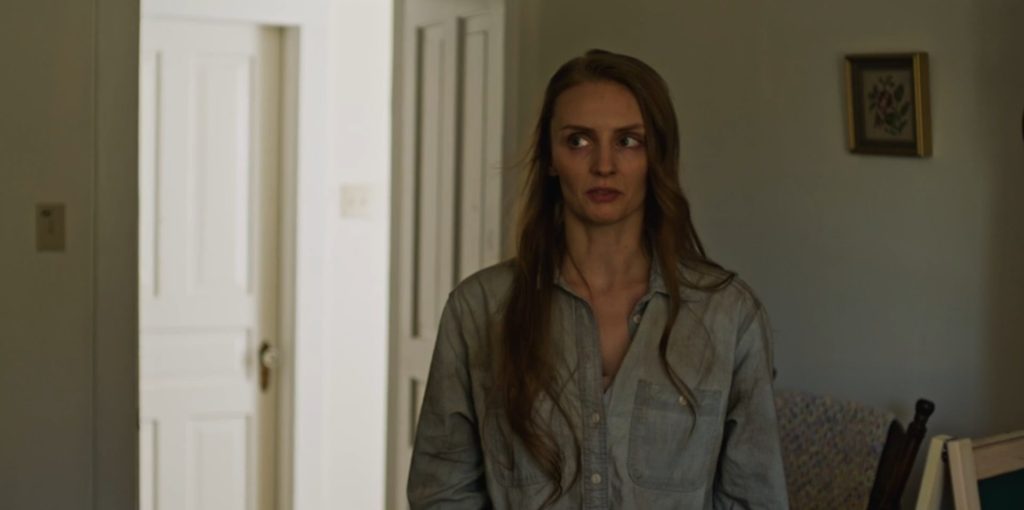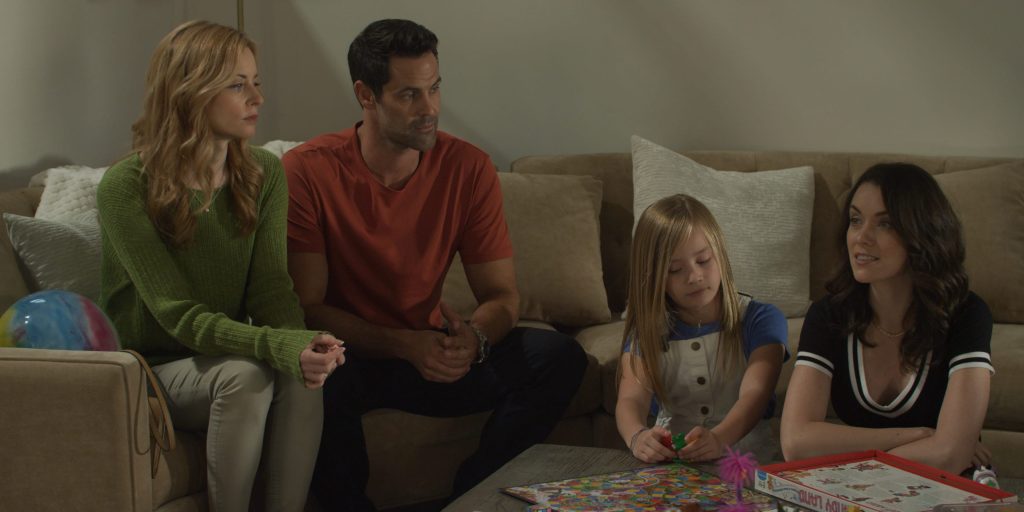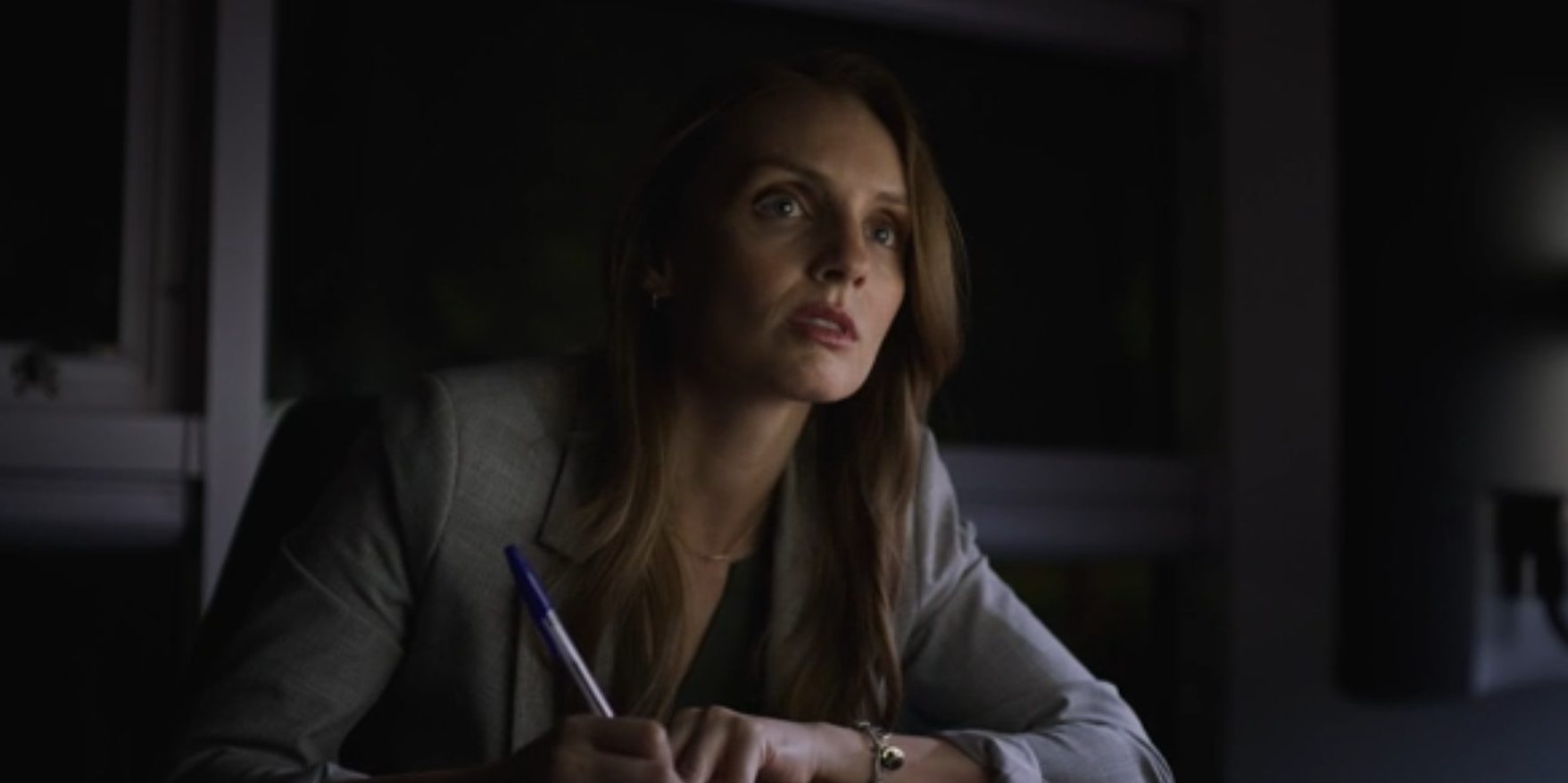Lifetime’s ‘The Last Thing She Said’ follows a young woman named Kate Winslow, who works extra-long hours in a corporate office. After spending most of her nights in a lonely fashion, Kate begins to open up upon befriending the building’s elderly nighttime cleaning lady, Maria. Subsequently, the two strike up a friendship during her overtime hours. However, when Kate rejects a date request from Maria’s middle-aged son, a series of dominos are set in motion that changes her life moving forward. The protagonist discovers that her once-pure relationship with Maria is turning into something dangerous and unsettling, leaving her with only one option to survive—escape before it’s too late. The Danny J. Boyle directorial uncovers an office thriller narrative that walks the tightrope between the mundane and disaster.
The Last Thing She Said Delves Into the Darkness Lying Behind Friendly Faces
‘The Last Thing She Said’ is a work of fiction penned by Don Woodman under the direction of Danny J. Boyle. Although the story veers away from reality, its central thriller plotline revolves around something universally relevant to most people—working overtime hours at an office. The trivial nature of the premise helps provide a solid footing before the story picks up steam and turns into something disturbing. The catalyst for this narrative shift and its ramping of intrigue is directly attributable to the sinister side hidden beneath the friendly exterior of Kate’s cleaning lady friend, Maria. As the narrative progresses, the young woman finds herself the subject of unwanted attention and psychological hurdles that turn her late-night office stints into a nightmare scenario.

Statistically, the number of people working late at night at the office has dropped since the beginning of office and work-life culture. However, the act has always been viewed as a last resort solution to squeeze out some more work on a hanging assignment or a type of routine only followed by a dedicated few. As such, it can often lead to a number of lonely encounters in the middle of the night within the halls of a corporate building designed for efficiency. ‘The Last Thing She Said’ captures the atmosphere and ambiance of working past the stipulated hours, especially how it can breed a sense of unease without another human being to keep company. Yet, even a friendly face in a desperate situation can often prove to be a curse rather than a blessing, as depicted in the thriller.
Similarities to The Wrong Mommy
While ‘The Last Thing She Said’ may be rooted in fiction, its narrative arc and central themes are reminiscent of the Lifetime thriller ‘The Wrong Mommy.’ Directed by David DeCoteau, the film follows Melanie, an office worker focused on climbing up the corporate ladder. After securing a higher position in her company, Melanie hires a new personal assistant named Phoebe, who takes care of all her tasks and helps her micromanage the things that she wants. While their relationship starts off favorably, helping her go about her business more efficiently, Melanie starts to realize that there may be an ulterior motive hidden underneath Phoebe’s actions. Consequently, the narrative veers away from its office dynamics to an obsession thriller that leads Melanie down a dark path.

Both ‘The Last Thing She Said’ and ‘The Wrong Mommy’ highlight the perils of trusting people at work and how they can hide something macabre and insidious underneath their friendly facades. Though these concepts are elevated and exaggerated for effect, they make for an engaging and grounded story that always finds its bearing through its adherence to everyday life situations. It helps foster a connection with the viewers while also making way for a suspenseful narrative where innocence is quickly stripped away and turned into a deadly game between stalker and prey.
Read More: Don’t Let Him Find You: Is the Lifetime Movie Based on a True Story?


